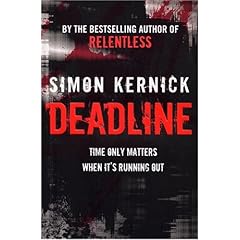This post, from Maurice Broaddus, originally appeared on the Apex Blog (of Apex Books) in March 2009.
A few years ago, I was speaking to a fellow black horror writer and she told me that she didn’t write characters of color in her work. She didn’t think it was important, even as a black writer, for her to write black characters (and descriptions of characters with dark hair and brown eyes were enough). It was more important for her to write for her chosen audience, who she perceived as white, and she didn’t want to in anyway alienate them.
This is how badly issues of race have infected and confused some people.
Yes, there is a current brouhaha brewing in speculative fiction that has since been dubbed RaceFail ’09. It started when Elizabeth Bear wrote a piece on writing the other which was then openly disagreed with. Hilarity ensued (catalogued here). I, too, wrote a piece on writing the other (in a response to something Jay Lake had written; mind you, both pieces came out a few YEARS ago) and have stayed out of this round of self-examination except to offer up a play-along cultural appropriation bingo card to go along with the “fantasy/science fiction no racism edition” bingo card. And yet, as Chesya Burke laments, such a discussion has largely not reared its head in the horror community. I don’t expect it to, frankly. Not to be too pointed about a race discussion in horror, but the genre largely amounts to white folks writing about white folks for the consumption of white folks. In other words, horror circumvents the issue of “writing the other” by … not.
With a few exceptions, race isn’t discussed much in the horror genre. Most folks are afraid to discuss it or admit there is a problem. With good cause: the last horror brand RaceFail discussion involved the release of Brandon Massey’s anthology series, Dark Dreams. The bulk of the discussion revolved around the series being the equivalent of reverse discrimination (because, you know, there are no all-white, even more specifically, all-white-male, horror anthology series) or writer affirmative action (because obviously writers like Tananarive Due, L.A. Banks, Wrath James White, Eric Jerome Dickey, Zane, or, I humbly submit, myself, can’t be published elsewhere).
In some ways, I can see why RaceFail has gone on within the science fiction and fantasy genre/communities. By the nature of those genres, they explore (and are allowed to explore) big ideas. Horror too often prides itself on being the “lowest common denominator” genre, not built for rigorous idea exploration. “I’m doing an analysis of man’s inhumanity to man” usually amounts to puerile masturbatory fantasies of rape and torture justified by someone getting their comeuppance in the end.
Read the rest of the post on the Apex Blog.



 Publetariat Editor’s Note: this story comes from a U.K.-based site, and apparently, the ‘Dan Brown’ cover isn’t being released here in the U.S. The cover on the left is the U.S.-edition hardcover.
Publetariat Editor’s Note: this story comes from a U.K.-based site, and apparently, the ‘Dan Brown’ cover isn’t being released here in the U.S. The cover on the left is the U.S.-edition hardcover.